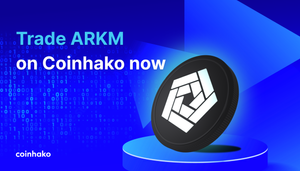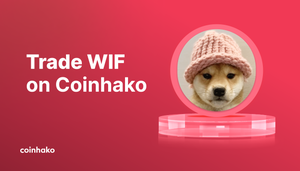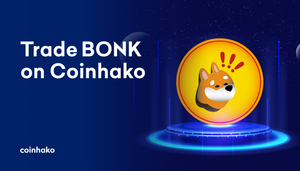DBS Blockchain hack is probably the first time a bank has organised a hackathon to explore innovative ideas using blockchain technology – and our team at CoinHako would like to express our deep gratitude to the DBS Innovation Group as well as partners StartupBootcamp FinTech and CoinRepublic.
70 hackers, ~20 teams, 32 hours.
The event was well planned, gathering the Bitcoin/Blockchain community in an ideal atmosphere replete with buzz, food and drinks. While we enjoyed meeting everyone, we also stepped into our zone at Block 79, motivated by the great environment to write some code.
At the start, our team brainstormed innovative solutions that could be built using blockchain technology. Soon, all of us realised this was an opportunity to delve deep into a key problem we face as a Bitcoin company in Singapore.
The Problem
CoinHako’s corporate bank account was shut down a few months ago – without reason. A quick check revealed news of other Bitcoin companies being affected similarly within the local community. Based on conversation with lawyers who have expertise in compliance, we learned the bank could be undergoing ‘de-risking’ procedures. Sure, but why shut us down? After all, at CoinHako, we employ Know Your Customer (KYC) procedures, Anti-Money Laundering (AML) checks, insure our reserves against hacking/theft attempts and use multi-signature wallets for the security of our users. Are these measures not enough to win the approval of Compliance officers? Perhaps not.
This is likely because the Compliance teams at banks do not yet know how to verify transactions made in Bitcoin. Imagine you’re a Compliance officer at a bank. Given the bad reputation Bitcoin has been hit by over time, will you be comfortable approving a bank account for companies dealing in Bitcoin? Once cash leaves the bank’s account, gets converted to BTC on an exchange, how do you understand where it gets spent? How can you actively identify suspicious/fraudulent activities and fulfil your obligation in reporting questionable ones?
Blockchain Transactions and Bitcoin Addresses – Anonymous or Public?
Well, at this point you would just disapprove the bank account if you are very new to the Bitcoin world. But if you are more acquainted, you would be aware of the Blockchain, a public ledger that keeps a record of every transaction that occurs using Bitcoin. How this happens is a fascinating read into the underlying technology of Bitcoin, one that’s sweeping the financial services industry and which motivated DBS to hold a hackathon over the weekend. In essence, Bitcoin transactions are public, but Bitcoin addresses are anonymous. Anyone can set up a new address each time he/she makes a transaction. This prevents others from knowing that person’s true identity.
What If We Could Flag Suspicious/Fraudulent Transactions?
During the hackathon, we built BlockIntel to help people visualise the flow of transactions made in Bitcoin, and trace them back to exchanges/brokerages. If suspicious transactions are found, banks’ KYC teams can act to shut down the company’s account and lodge an AML (or other relevant) report to authorities. Given the number of companies that are building solutions using blockchain technology, we are pleased to share that this tool will be relevant to analysing any activity that occurs over the blockchain. Hence, KYC teams can be more confident of approving bank accounts of such companies, like CoinHako, because they will be empowered to track transactions better.
Interestingly, while solving a problem for ourselves as a Bitcoin brokerage, we also chanced upon other use cases. After our final presentation, we were approached by some security companies which would like to employ our tool.
Or what if there is a DBS Blockchain?
The Outcome – Did CoinHako Win at DBS Blockchain Hackathon?
We got so engrossed in building BlockIntel that prize money receded in our minds during the hackathon. Of course, as a startup, money is very important to us as is recognition of our work. Hence, we are happy to have been awarded 3rd position with a cheque of SGD 8,000. Thanks DBS Blockchain Hack, it’s a great start!
We are also happy to share that first and second prizes were awarded to teams which built solutions for the unbanked and emerging markets. Using blockchain technology to benefit these segments are ideas that we at CoinHako are personally excited about and wish NuBank and OmniChain the very best in furthering their work. You may like to learn more about their innovations here.
Once again, we would like to thank the team behind DBS Blockchain Hack for the amazing experience.
Next Steps…
Our plan is to deploy BlockIntel internally at CoinHako, continue conversations with security agencies and with compliance teams at banks. We are also developing the tool further. As of now, all our efforts are in progress. We are keen to grow BlockIntel as a viable product which can serve the Bitcoin and Blockchain communities. If you would like to learn more about our work, please feel free to get in touch with us at consult@coinhako.com.







